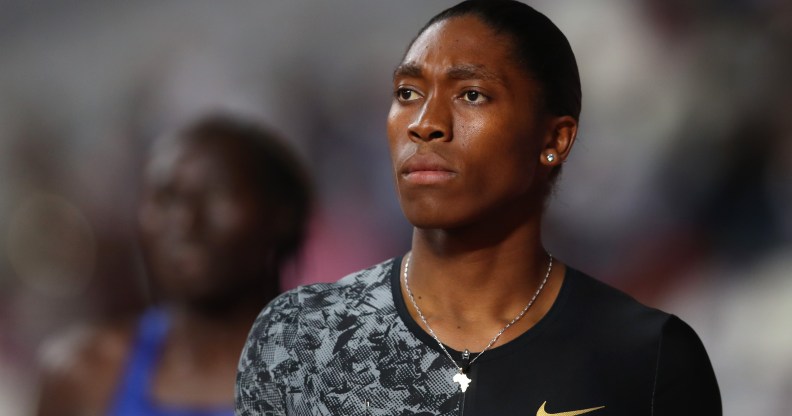Caster Semenya called a “biological man” by Spain’s former athletics head

Caster Semenya. (Francois Nel/Getty)
South African female athlete Caster Semenya has been called “biologically male” by a member of the International Association of Athletics Federations (IAAF) board of directors.
José María Odriozola, a professor of biochemistry who is also the former president of Spain’s athletics body, made the comments in an interview with Sport magazine.
Odriozola was defending the IAAF regulations on limiting testosterone levels for female athletes – limits that do not apply to male athletes.
He said that Semenya is “biologically a man” who has “a huge advantage” over her rivals.
Odriozola also made comparisons between Semenya’s case and that of female student athletes in the US who have filed a lawsuit against allowing transgender girls to compete in women’s sports – even though Semenya is a cisgender woman.
“In an American university, athletes have protested that scholarships are being taken by transgender athletes who say they feel women but physically they are men. They have a huge advantage over others and receive scholarships because they make better brands,” he said.
Semenya told she must take testosterone-reducing medication to compete
Semenya is currently fighting for her right to run competitively, after the IAAF ruled that women with a so-called difference of sexual development (DSD) would need to take hormones to lower their testosterone levels in order to compete.
In June, a high-ranking scientist at the IAAF said that Semenya and other women athletes with naturally high levels of testosterone could be made to undergo psychological testing for gender dysphoria before being allowed to compete in women’s sports.
The restrictions on Semenya competing were temporarily overturned by the Swiss Federal Supreme Court on June 3, though the IAAF is trying to have them reinstated.
The IAAF has admitted that forcing female athletes to lower their testosterone levels to compete is discriminatory, saying it is “discriminatory but necessary”.
Semenya has been battling the IAAF since 2018, when the governing body first introduced its limits on women with high testosterone levels.
The South African Olympian filed a complaint with the Court of Arbitration for Sport (CAS), but lost her appeal on May 1 of this year.
As a result, she was told that she could either take treatment to change her natural hormone levels, or else compete in any men’s event of her choosing.
Critics say the IAAF has been ‘blatantly racist’ in Semenya’s case
Semenya has repeated time and again that she is a woman and intends to compete as one.
Many have accused the IAAF of discriminating against Semenya, as its hormone regulations only apply to the races which she usually competes in, between 400m and one mile.
Others have criticised the IAAF for singling out Semenya – a black butch lesbian – on this issue, with South Africa’s ruling party calling it “blatant racism”.

